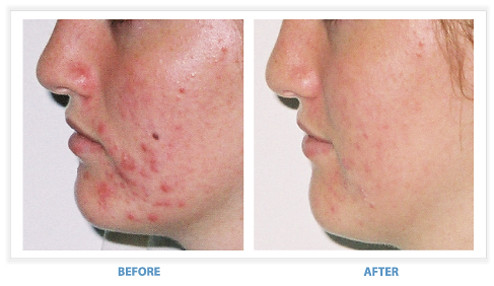What Is It?
You get a pimple when a pore in your skin gets clogged, usually with dead skin cells. Sometimes bacteria get trapped inside the pore, too, causing the area to become red and swollen.Cystic acne happens when this infection goes deep into your skin, creating a red, tender bump that's full of pus. It may hurt or itch. If a cyst bursts, the infection can spread, causing more breakouts.
Who Gets It? And Where?
You’re most likely to develop cystic acne in your teens or early 20s. But it can strike someone as young as 8 or as old as 50. Your face, chest, back, upper arms, or shoulders can be affected. Severe cystic acne is more common in men, but women get it, too. Women often have cysts on the lower half of the face.
No one is sure of the exact cause, but hormones called androgens play a part. When you’re a teenager, androgens increase. This leads to changes in your skin that can result in clogged pores and acne. In women, hormone changes can be brought on by menstrual cycles, pregnancy, menopause or a condition called polycystic ovary syndrome.
How Is It Treated?- Oral antibiotics help control bacteria and lower inflammation. Sometimes your acne may not respond to antibiotics, though. Or you may find they don’t work as well after a few years.
- Birth-control pills help some women by regulating their hormones.
- Prescription-strength creams, lotions, or gels with retinoid, a form of vitamin A, can help unplug your pores and help antibiotics do their job.
- Spironolactone is a medication that helps you get rid of unneeded water, but also is effective for cystic acne in women.
More Advice
Don’t touch cysts or pick at these blemishes. You may push the infection deeper and make it spread.
Try to relax. Stress can cause your body to release more hormones, which can make acne worse.
Health and Beauty tips
2200 SW 16 ST Suite 224 Miami, FL 33145
Please “like” & share! Thank you!
I hope you’ve found some of my tips helpful!
FOR LIVE ACTION, FOLLOW ME ON SNAPCHAT: lizskincare
INSTAGRAM: lizskincaremiami
INSTAGRAM: lizskincaremiami
BEST SKINCARE WISHES LIZ SKINCARE





No comments:
Post a Comment